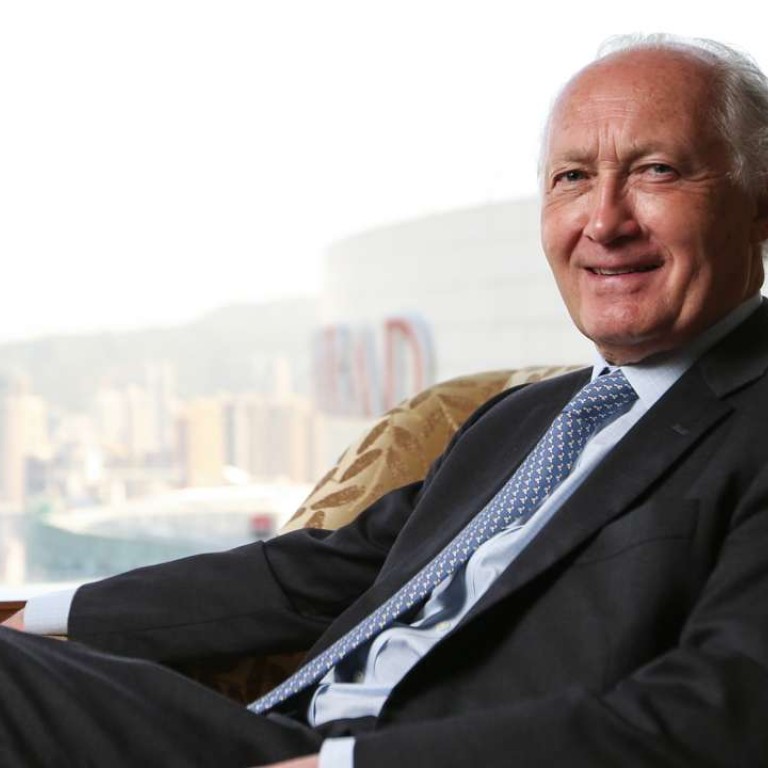
UK used to be the top choice for Asian property investors — but the times are a-changing
Philip Charls, chief executive of the European Public Real Estate Association says Asian investors are gradually now changing focus to stronger economies, such as Germany and France
Talk to Asians about property investment in Europe, and the UK more often than not used to springs to their minds. Their knowledge of the rest of the continent is limited. But that might all be about to change.
The European Public Real Estate Association (EPRA), a Brussels-based non-profit association representing Europe’s publicly listed property companies, has been actively bringing real estate firms from countries like France, Spain and Italy to make presentations and meet with investors in Asia in a bid to bridge the knowledge gap.
Founded in 1999, EPRA now has more than 220 members, representing over €365 billion worth of real estate assets and 93 per cent of the market capitalisation of the FTSE EPRA/NAREIT Europe real estate index.
Philip Charls, its chief executive, says European property companies will see slower growth in 2017 – but they are well prepared, and investment returns in the European stock market is still attractive.
Is there increased interest from Asian investors in European real estate?
There is definitely increasing interest, but they are still cautious. They have started to open their minds to the idea, and that’s because of Brexit. In the first wave of Asian investors coming to Europe, most went to English-speaking areas, effectively the UK, most likely London.
But they are gradually now changing to focus on stronger economies, such as Germany and Paris in France.
Retail properties and office buildings are always the most popular asset classes, and I have also seen more activity in the hotel sector, such as hotels in Spain, because of the fast-growing tourism industry.

Many companies, especially financial institutions, might have to move their activities to other European countries, to cities like Paris, Frankfurt, Dublin, and maybe Milan, as a result of Brexit.
One of the biggest effects of Brexit is that if you’re within the EU, once you have a financial product approved in a European country you can sell in all European countries.
But if and when Brexit takes place, all the products holding a “passport” in UK, can no longer be sold in other EU countries. Something like 50,000 jobs are linked to passporting rights – that’s a massive number.
As financial institutions move from London, Asian Investors are likely to look at the office markets of Frankfurt and Paris. That could become a dominating market trend this year, and in the next couple of years.
Do worries over terrorism and political uncertainties continue to hurt Europe?
The terrorism incidents have actually benefitted many European countries such as Spain, because you have seen tourists shifted from Egypt and Turkey, which had been traditional destinations for a lot of Europeans. Spain is very safe, and so many investors and travellers choose to go to safer places.
But I don’t expect any direct influence in the market because of the planned elections coming up in France, the Netherlands, and Germany this year.
They will create some uncertainty. But i don’t think you will see another Brexit happening.
Countries have been shocked by what happened after Brexit. The value of UK companies is down something like 25 per cent since June, and the market still thinks that could fall further, as investors choose to leave the UK. I don’t think other countries want that.
What are your expectations for 2017?
We expect a stable 2017, companies will see slower growth. But they are very well prepared, the average loan to value ratio is as low as 38 per cent, from about 50 per cent at the financial crisis. Duration is 7.9 years on average. Interest rates remain low.
In 2015, we saw an average 15-20 per cent return in the European stock market, taking into account both stock yield and appreciation. Last year it was cut to 4.7 per cent due to the UK index’s slump.
We project a 4-6 per cent growth in 2017, a more realistic number – expectations from Asian investors are around 6 per cent.

